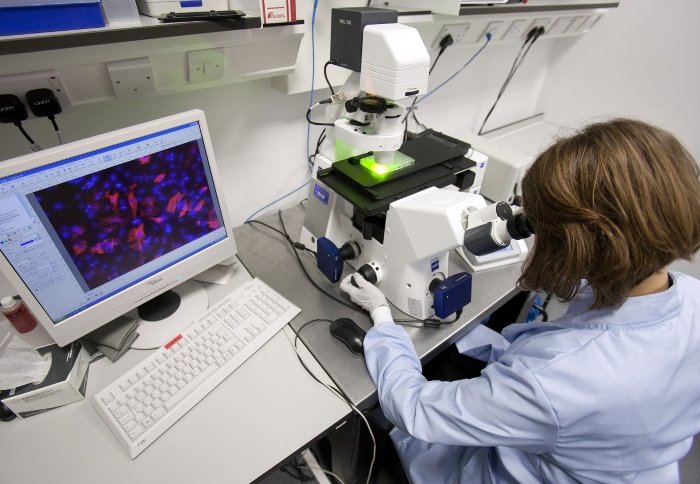New centre aims to mend broken hearts
by Sam Wong

Imperial will lead one of three new British Heart Foundation (BHF) research centres focussed on repairing the damage caused by a heart attack.
The BHF is pledging £7.5 million raised by their Mending Broken Hearts Appeal to fund scientists at three new dedicated research centres in the UK.
The three BHF Centres for Regenerative Medicine will each focus on a particular approach to regenerate damaged heart tissue.
The Centre at Imperial College London, led by Professor Sian Harding, will study ‘induced pluripotent stem cells’ (iPS) – a type of stem cell created from patients’ own cells – as well as naturally occurring stem cells inside the heart and how they could be turned into a regenerative treatment. The Imperial team will work in collaboration with scientists at the Universities of Westminster, Nottingham, Glasgow and UKE Hamburg.
“For this Centre we have brought together a great team of scientists from many disciplines, with exciting new technologies and biomaterials,” Professor Harding said. “Our aim is to reverse the decline in function of the damaged heart by creating fresh muscle in combination with new materials to boost its effect.”
The BHF are also funding two other new centres led by the Universities of Oxford and Edinburgh.
Professor Peter Weissberg, Medical Director at the BHF, said: “We’re excited by the transformational impact these centres could have on science aimed at repairing heart damage. By working with the UK Regenerative Medicine Platform’s hubs, our BHF Centres of Regenerative Medicine will turn groundbreaking research into real benefits for people with heart failure.
“We have committed to spending £7.5 million on these centres over the coming years from our Mending Broken Hearts Appeal, but this depends crucially on continued support from the public. You can help by supporting our Mending Broken Hearts Appeal.”
Stem cell therapies to mend broken hearts
The first goal of the Centre based at Imperial is to grow new, beating heart muscle to graft on to damaged hearts, helping them beat more strongly again. Scientists at Imperial led by Professor Sian Harding will collaborate with other UK universities, including Nottingham, on this ambitious project.
This approach is called tissue engineering, and will use stem cells to create new heart muscle. Tissue engineers have already made other body parts - such as skin and windpipes - from stem cells, and transplanted them successfully into human patients. But the heart is far more complex than the windpipe. It's a mix of different types of cell, all lined up perfectly in the right proportions and directions to beat together in a highly controlled way.
Researchers at the new centre, which has been awarded £2.5 million, aim to meet the challenge of growing working new heart muscle.
They will also help to take a separate programme of research to the next stage - growing new heart muscle from dormant stem cells in the heart. This work will be led by BHF Professor Michael Schneider, who discovered that the adult heart contains a very small population of apparently dormant stem cells that could be targeted with medicines and then used to help the heart to repair itself after a heart attack.
Based on a news release from the British Heart Foundation. For more information on the Mending Broken Hearts Appeal visit bhf.org.uk/findthecure
Article supporters
Article text (excluding photos or graphics) © Imperial College London.
Photos and graphics subject to third party copyright used with permission or © Imperial College London.
Reporter
Sam Wong
School of Professional Development